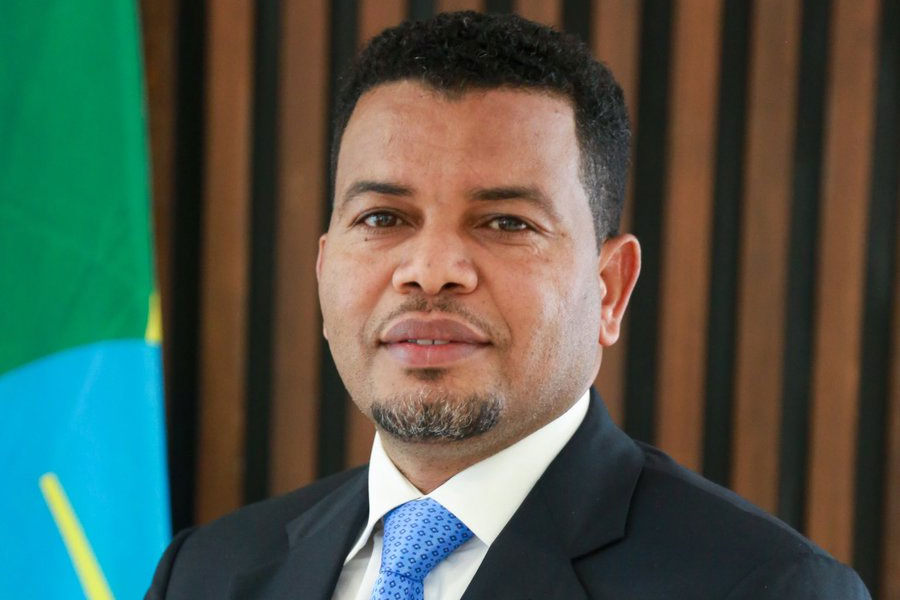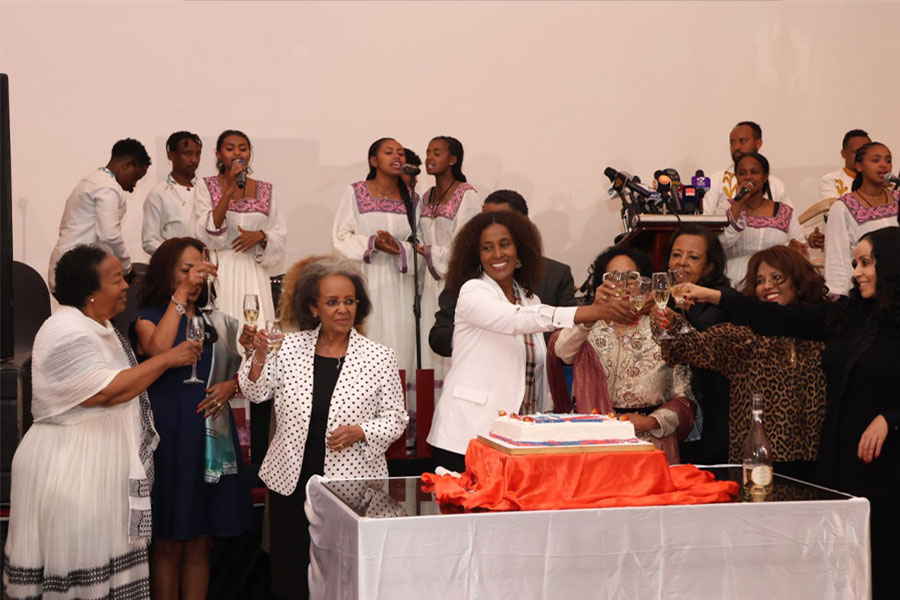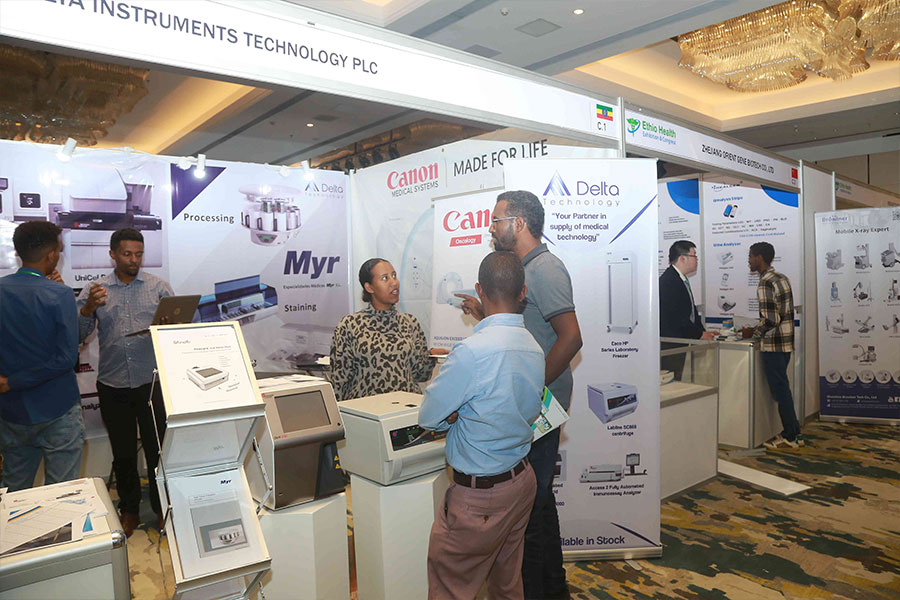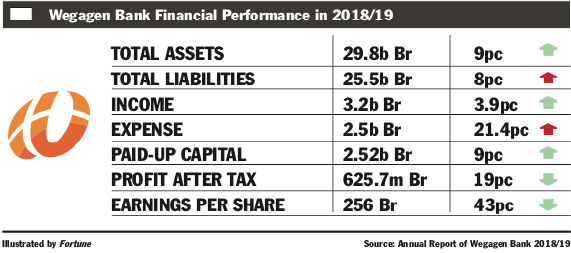
Sunday with Eden | Feb 13,2021
Feb 26 , 2022
By HAWI DADHI
Several initiatives to form commercial banks are on the verge of giving up their ambition to enter the industry, while others are weighing options elsewhere in the financial sector.
Dreams of forming banks are cut short after the central bank increased the minimum founding capital threshold to five billion Birr last April. Regulators at the National Bank of Ethiopia (NBE) had given promoters of banks a six-month window to be incorporated with half a billion Birr capital, following the 10-fold jump in the minimum threshold. Two dozen banks in the process of incorporation were also required to increase capital to five billion Birr in seven years, with banks in business given five years to meet the requirements.
Only two interest-free banks (ZamZam and Hijra), a mortgage bank under the brand Goh Betoch Bank, Gadaa and Ramis banks joined the industry after raising half a billion Birr in equity before the deadline last November.
The challenge proved too difficult for others on the way, who pleaded with the central bank for an extension. Regulators at the NBE declined. Among those between a rock and a hard place is Afro Bank, which started floating equity to the public last January. It had offered 750,000 shares with a par value of 1,000 Br. Its promoters say they had raised a subscribed capital of around 200 million Br from 54 shareholders. However, raising five billion Birr remains a dream.
They want to persuade shareholders to consider other investment alternatives, according to Kassahun Haile, one of the promoters of Afro Bank.
Time to raise the five billion Birr is not on their side, according to Kassahun. It would be too long a wait for shareholders looking to recoup their investment. The equity is kept in non-interest bearing accounts, and the Bank would lose out to inflation and currency depreciation.
"This is one of the things we asked the central bank to reconsider," said Kassahun.
Yinager Dessie (PhD), governor of the central bank, held discussions with the promoters a few months ago.
“Many of them have informed us they've dropped the sale of shares," Frezer Ayalew, director of banking supervision at the NBE, told Fortune.
This entails notifying the central bank and returning equity raised to shareholders.
The promoters of Akufada Bank, another initiative unable to meet the threshold, seem to have found a resolution. Its shareholders have agreed to divert equity to a microfinance institution (MFI) dubbed Akufada Microfinance. It was incorporated last year with 10 million Br in capital, according to Robel Nigusse, project manager at Akufada.
Financial experts say shifting towards establishing a microfinance or fintech company is viable. Incorporating as an MFI has its own incentives, according to Kinfemichel Yibkaw, an expert who has worked in the microfinance industry for over a decade.
Forty-one microfinance institutions serve five million clients, most of whom live in rural areas.
Other promoters have been consulting with the central bank about their options, according to Frezer.
“But none have officially started the process to form a microfinance institution," he disclosed.
The banks under formation are not limited to investing in the financial sector. With shareholders' consent, they can stop forming banks and redirect the resources into other ventures.
Ge'ez Bank, which raised 300 million Br in subscribed capital since 2020, is considering all options, according to Layne Kinfe, marketing manager.
“The future of the initiative is under discussion,” he said.
Abdulmenan Mohammed, a financial analyst based in London, advises shareholders to pull out of these initiatives. The capital requirements will mean years before shareholders begin to see returns on their investments. A bank with a paid-up capital of five billion Birr would need to earn 350 million Br in net profit to achieve returns of seven percent – equivalent to the average savings interest rate at commercial banks.
"It's not a wise option for prospective investors," said Abdulmenan. "The better option would be to invest in the existing financial institutions, provided their shares are priced fairly."
Abdulmenan says considering investments in other financial institutions, such as microfinance institutions, is a viable way forward as there are no significant entry barriers.
“The track records of non-financial institutions are not impressive," he said. "This option may not be appealing to investors, who are likely not ready for such investments.”
Only four of the 19 private commercial banks – Awash, Dashen, Cooperative Bank of Oromia and Bank of Abyssinia – have topped the central bank's capital threshold. Third-generation banks such as Enat, Addis International, and Debub Global have a long way to go, each having less than two billion Birr in paid-up capital. The number of operational banks is expected to swell to 27 when new entrants, including Amhara, Tsehay, and Geda and microfinance-turned-banks like Sinqe, Tsedey and Shebele acquire operational permits.
Of those under formation, Selam Bank is continuing efforts to raise equity. To be formed as a mortgage bank, Selam's promoters, including Bethlehem Tilahun and Zemedeneh Negatu, initially had planned to collect two billion Birr in a few months before the deadline closed in. They were encouraged by positive feedback from the Diaspora and prospective investors at home, according to Zemedeneh. He remains bullish that the demand for housing will help the Bank raise funds.
"The Bank is on track to raise the required capital," Zemedeneh told Fortune.
Still, other initiatives like Damota, Huda, and Hossana will need to decide on the way forward.
PUBLISHED ON
Feb 26,2022 [ VOL
22 , NO
1139]

Sunday with Eden | Feb 13,2021

Commentaries | Mar 25,2023

Fortune News | Jul 06,2025

Verbatim | Jun 25,2022

Fortune News | Jun 21,2025

Radar | Feb 25,2023

Radar | Nov 07,2020

Fortune News | Feb 22,2020

Radar | Nov 19,2022

Radar | Oct 22,2022

Dec 22 , 2024 . By TIZITA SHEWAFERAW
Charged with transforming colossal state-owned enterprises into modern and competitiv...

Aug 18 , 2024 . By AKSAH ITALO
Although predictable Yonas Zerihun's job in the ride-hailing service is not immune to...

Jul 28 , 2024 . By TIZITA SHEWAFERAW
Unhabitual, perhaps too many, Samuel Gebreyohannes, 38, used to occasionally enjoy a couple of beers at breakfast. However, he recently swit...

Jul 13 , 2024 . By AKSAH ITALO
Investors who rely on tractors, trucks, and field vehicles for commuting, transporting commodities, and f...

Oct 4 , 2025
Eyob Tekalegn (PhD) had been in the Governor's chair for only weeks when, on Septembe...

Sep 27 , 2025
Four years into an experiment with “shock therapy” in education, the national moo...

Sep 20 , 2025
Getachew Reda's return to the national stage was always going to stir attention. Once...

Sep 13 , 2025
At its launch in Nairobi two years ago, the Africa Climate Summit was billed as the f...